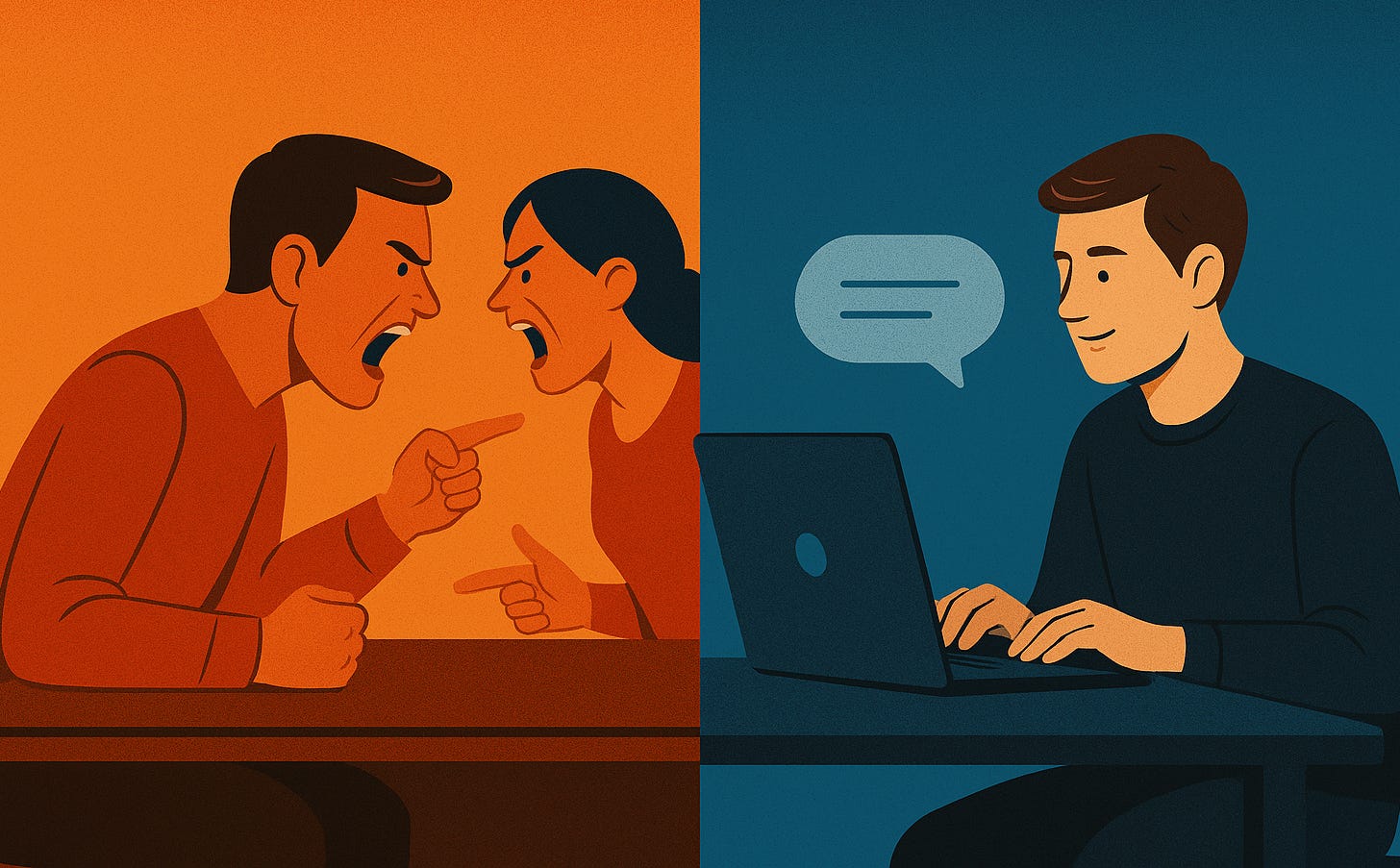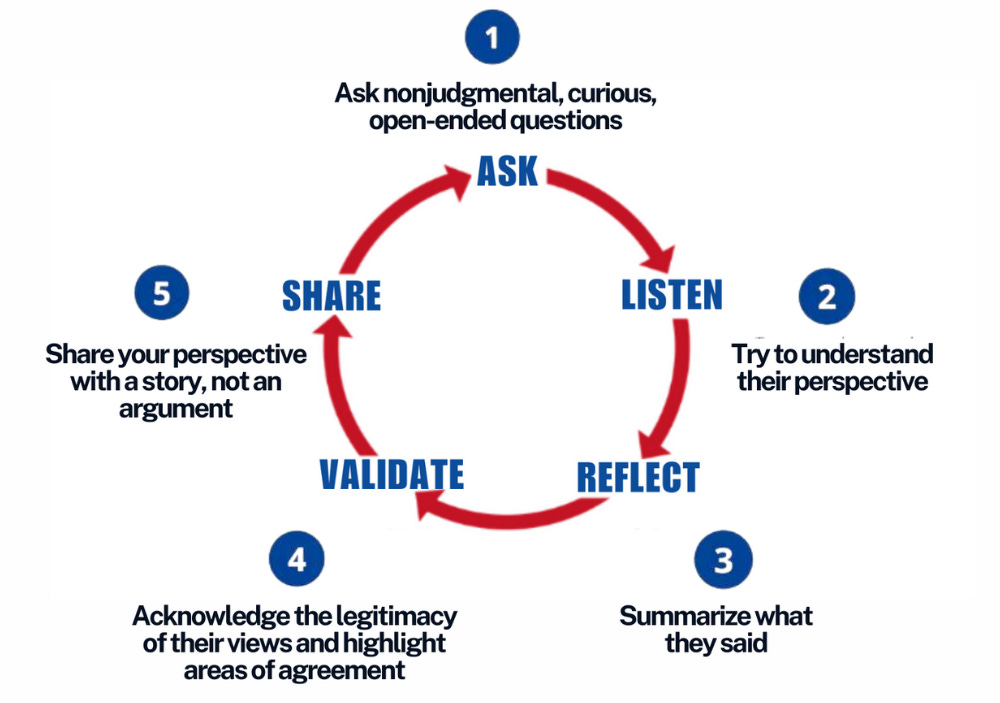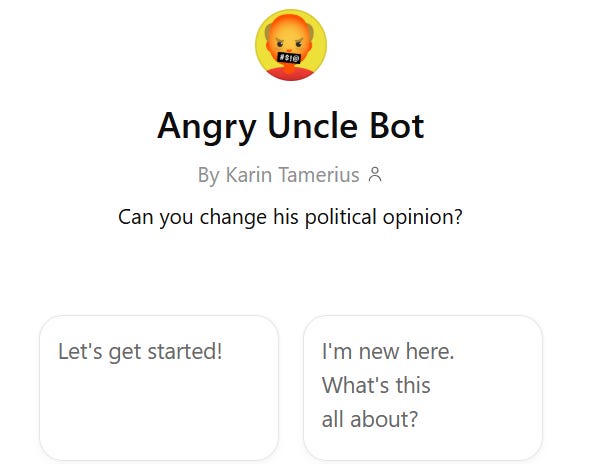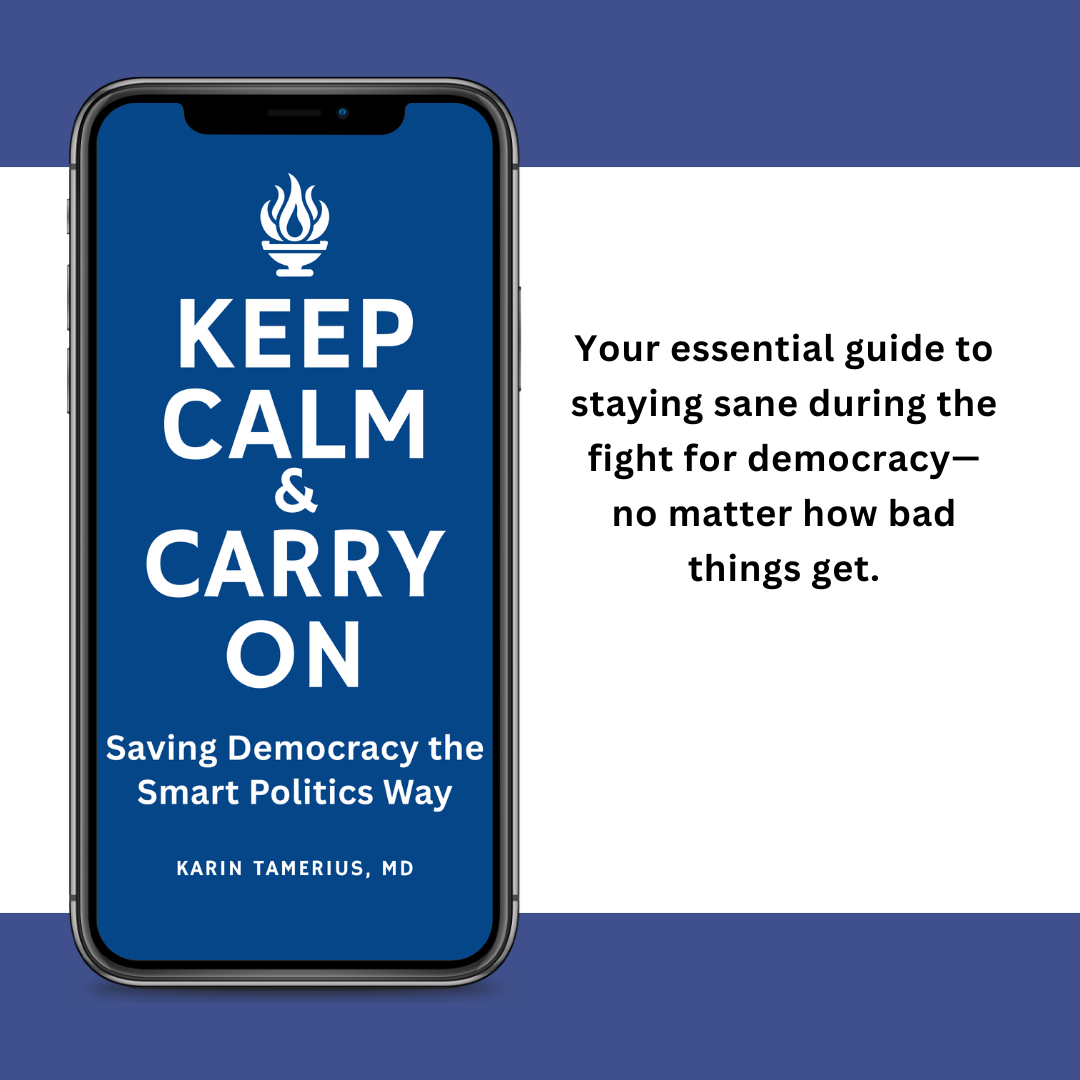Think the Internet Is the Worst Place to Talk Politics? It Might Be the Best
Six Reasons Online Dialogue Is Often Better Than Discussing Politics in Person
People often ask me if Smart Politics works online. I can’t help but smile when they do because I basically invented it right on my Facebook feed.
It started back in late 2016 when I decided I wanted to understand how anyone could vote for Donald Trump. I reached out to my Republican uncle to hear his perspective and then a bunch of his right-wing friends jumped into the conversation.
Despite what you might think, those early online conversations weren’t a disaster. In fact, they were easier and more constructive than most political conversations I’d had in person throughout my entire life.
That’s not to say they were easy. Talking politics is always hard. But online conversations can be less hard—and sometimes far more effective—than talking politics face to face.
Those early exchanges helped me see patterns in how people became defensive—and what makes them let their guard down. I started testing different ways of asking questions, responding to resistance, and showing empathy. Over time, I distilled those practices into a repeatable framework: the Persuasion Conversation Cycle.
The Cycle is grounded in psychology, particularly the dynamics of trust and defensiveness. It walks you through each phase of a conversation—from managing your own emotions to making space for the other person’s perspective to planting seeds of change. It’s not about winning arguments. It’s about building relationships and creating the emotional safety that makes change possible.
And it turns out my initial experiences successfully discussing politics online weren’t a fluke. The internet, for all its faults, offers several surprising advantages that make it an ideal place to begin practicing Smart Politics techniques.
Here are six reasons why talking politics online might not just be possible—it might actually be easier than in person.
1. Asynchronous Communication
One of the first benefits I noticed when I started discussing politics online instead of in person was time. Unlike face-to-face conversations, which demand instant responses, online exchanges gave me space to pause and think before I replied. That changed everything.
I began to craft my responses carefully. I’d write something, read it over, erase it, and try again. Then I’d repeat the process—sometimes over and over—until I found a way of speaking that didn’t make things worse. I stopped reacting in ways that were guaranteed to provoke anger or defensiveness. I started learning how to engage without escalating.
Just as important, I learned when to walk away. No amount of rewriting could salvage a response when I was still angry, anxious, or emotionally flooded. But when I returned to the conversation in a better headspace—calmer, more centered—I saw things more clearly. I found greater empathy for the other person’s experience. I could access parts of myself that genuinely wanted to understand where they were coming from, not just convince them I was right.
And the best part? The more I practiced, the better I got. Over time, I didn’t need to keep rewriting everything or taking long breaks. Emotional regulation became more automatic. I could stay grounded even when the conversation got heated. I could choose words that were both honest and kind, challenging and compassionate, without needing hours to find them.
That’s the power of asynchronous communication. It’s not just a buffer—it’s a training ground. It gives us the space to develop the skills and habits we need to become more persuasive, more empathic, and ultimately, more effective political communicators.
2. No Visible Micro Expressions
One of the hardest things about talking politics in person is not what you say—it’s what your face says when you hear something you find offensive or absurd. Even when you’re trying to stay friendly and open, your body may betray you.
An involuntary eye blink. A grimace. A flash of contempt. These micro expressions—brief, automatic facial reactions—happen in a fraction of a second. You don’t intend or notice them, but the other person usually does. And once that emotional reaction is out in the open, trust erodes and defensiveness kicks in.
Online, this problem disappears. Nobody can see your facial expressions. You can have a visceral reaction, take a moment to breathe, and then respond with care. You can show curiosity and compassion, even if what you’re initially feeling in the moment is disbelief or disgust.
This isn’t about being fake. It’s about giving your better self a chance to show up. By removing the pressure of face-to-face composure, online conversation creates space for emotional regulation and thoughtful response.
3. Low-Stakes Practice with Strangers
One of the biggest reasons people avoid political conversations is fear of damaging relationships with people they care about. They worry that saying the wrong thing might offend a friend, alienate a colleague, or create lasting rifts within their family. That fear keeps many well-meaning people silent—even when they desperately want to speak up.
But the internet offers a different kind of space. Online, you can engage with people you don’t know—and who don’t know you. The emotional risk is dramatically lower. You’re not trying to protect a lifelong relationship or preserve holiday harmony. If things go badly, you can walk away with no personal fallout. And often, you can participate anonymously or under a pseudonym, which gives you even greater freedom to experiment and learn.
That freedom is critical, because learning any new skill—including political dialogue—requires trial and error. You’re going to make mistakes. You’re going to say things you regret. But when the social stakes are low, you can recover, reflect, and try again. In educational psychology, this is known as a “low-threat environment”—a setting where people feel safe enough to take risks and grow from failure.
In a world where political missteps are sometimes publicly punished, this kind of practice space is invaluable. Of course, it’s still important to be thoughtful about where you engage. Not every corner of the internet is safe or constructive. But in well-moderated communities—or even in comment sections on public posts—you can find opportunities to build your skills without jeopardizing your relationships or your reputation.
4. Structured Training Environment
One of the best things about online dialogue is that you don’t have to rely on memory. You can keep Smart Politics tools open right on your screen, next to the conversation.
In those early days, I pinned the Persuasion Conversation Cycle to my monitor so I could see exactly which step to take next. Today, I encourage people to display this image in a highly visible location until they become so accustomed to using it that they no longer need to look.
The ability to consult your tools as you go gives you the structure and support you need to stay on track. It’s like having a coach in your corner during every exchange. That kind of real-time guidance is impossible in a live setting.
5. Greater Emotional Tolerance
Political conversations aren’t just cognitively challenging—they’re emotionally charged. Even when there’s no argument, the act of engaging with conflicting viewpoints can trigger anger, anxiety, and frustration. That’s why so many people choose to avoid politics entirely. It feels safer.
But avoidance comes at a cost.
In my article “The Hidden Cost of Avoiding Politics: Why You’re More Anxious Than Ever,” I explain that while tuning out political news may provide short-term relief, it actually reinforces our sense of helplessness and fuels chronic stress over time. When we avoid engagement, we don’t build the emotional skills we need to face political reality, and so even small exposures can feel overwhelming.
The antidote isn’t total immersion or constant vigilance. It’s gradual exposure in a controlled environment. Online conversations are uniquely suited for this. They allow you to dip in and out on your own terms. You can practice staying calm, observing your reactions, and responding with thoughtfulness instead of reactivity.
This kind of incremental practice builds emotional resilience. Psychologists call it desensitization—a proven technique for reducing emotional overreaction by gradually increasing exposure to the trigger in a safe context. Over time, posts that once triggered anxiety or anger lose their grip. You become more composed, more curious, and more capable of engaging constructively under stress.
Smart Politics isn’t about toughing it out or suppressing your emotions. It’s about learning to hold your center—so you can stay engaged and effective, no matter how intense the conversation becomes.
6. Influence a Passive Audience (Lurkers)
When people talk about political persuasion, they tend to focus on the person they're talking to—the loud, combative, resistant commenter on the other side. And yes, it can be discouraging when that person refuses to budge, even after you've done everything “right.” But here’s what most people don’t realize: that person is rarely your most important audience.
Online conversations have an invisible layer: the passive readers, or “lurkers.” These are the people who don’t comment, don’t react, and don’t argue—but they’re watching. And they’re often more persuadable than the person you’re engaging directly.
Lurkers aren’t emotionally invested in the back-and-forth. That distance gives them space to reflect without feeling personally threatened. They’re also more representative of the broader public—people who are uncertain, ambivalent, or quietly curious. They’re not defending a position; they’re evaluating what they see.
And what do they see? Not just your arguments, but your demeanor. Are you calm or reactive? Respectful or condescending? Curious or combative?
This is where Smart Politics shines. Because we’re not trying to “win” debates—we’re modeling a different kind of political engagement: grounded, thoughtful, and compassionate. That modeling has power. According to social learning theory, people don’t just learn from what others say—they learn from how others behave.
Even if the person you're speaking with stays entrenched, your example plants seeds. Some of the most powerful messages I’ve received have come from lurkers who never commented publicly but later told me that watching those exchanges changed how they saw things—or gave them the courage to speak up themselves.
If you're only measuring success by visible conversions, you'll miss the deeper impact your presence is having. Online political dialogue is as much performance as conversation—and your quiet audience might be bigger, and more persuadable, than you think.
Ready to Try? Start with a Chatbot
If you're interested in practicing Smart Politics but still feel nervous about real-world conversations—online or off—you’re not alone. That’s why I created a tool to help.
Angry Uncle Bot, a gamified chatbot I developed using OpenAI’s GPT-4, is designed to simulate realistic, emotionally charged political conversations. It offers a safe, supportive space to explore Smart Politics techniques and build your emotional resilience, without the pressure of a real audience.
You can use Angry Uncle to:
Discuss any political issue of your choice
Learn to respond to resistance with empathy
Regulate your emotional reactions under stress
Build confidence for future conversations
Because it’s a bot, you can take your time. Pause, rewind, try a different approach—there’s no social risk and no lasting consequences.
Plus, because there’s a coaching avatar built into the bot that’s modeled on me, you’ll get real-time feedback and encouragement as you proceed through your dialogues.
“Think of Angry Uncle as your personal trainer for political empathy—helping you practice the mindset and skills that make constructive dialogue possible.”
Important: You’ll need to sign up for a free OpenAI account to use Angry Uncle. Free users can engage in about 20 exchanges per session. If you have a paid account, you can continue the conversation as long as you like.
You don’t have to feel ready. You just have to start. And this is the safest, smartest place to begin.
Here’s the link: https://chatgpt.com/g/g-B4TzjoXQ9-angry-uncle-bot
Final Thoughts
The internet gets a bad rap as a place for political discussion—and sometimes, that reputation is deserved. But when used intentionally, online spaces offer unique advantages: structure, safety, time, emotional growth, and reach. These conditions make them not just viable but optimal places to start practicing Smart Politics.
Of course, not every online exchange is productive. Trolls are real, and their goal is disruption, not dialogue. But after years of engaging online, I’ve developed a system I call Troll Taming—and it can work wonders. I’ll share more about that in my next article.
In the meantime, remember: you don’t have to wait until you’re perfect to get started. Smart Politics is a skill—and like any skill, it grows with practice. The internet might just be the best place to begin.
This article is part of The Smart Politics Way, a progressive newsletter about defending democracy through persuasive engagement. Dr. Karin Tamerius is a political psychiatrist and the founder of Smart Politics.









Thank you. This article from Dr. Karin Tamerius is a brilliant toolbox wrapped in an internet redemption arc.
People complain that “online isn’t real life,” but when it comes to political dialogue, it’s actually closer to the training ground than the battlefield. Asynchronous space. Emotional rehearsal. No visible grimace when your uncle says the Civil War wasn’t about slavery.
The part about lurkers? That’s the secret sauce. You're not debating for the loudmouth with the Pepe avatar. You're seeding thought in the dozens watching silently, wondering if there’s a way to disagree without becoming a monster.
Smart Politics isn’t about coddling ignorance. It’s about knowing when to plant a question instead of a flag. That’s how consciousness shifts—not with a mic drop, but a pause that stays with someone days later.
Internet dialogue can suck. But it can also be the dojo. Where you practice not flinching. Where you choose curiosity over ego. Where you learn to speak truth like a tuning fork instead of a hammer.
Turns out, the comments section is sacred ground. Who knew?
I commented on another article about this, so thank you for going further in detail here! As a political live streamer talking to a chat room, I’m curious about the nuance of one side being seen and heard while the other side is not. Again, thank you!